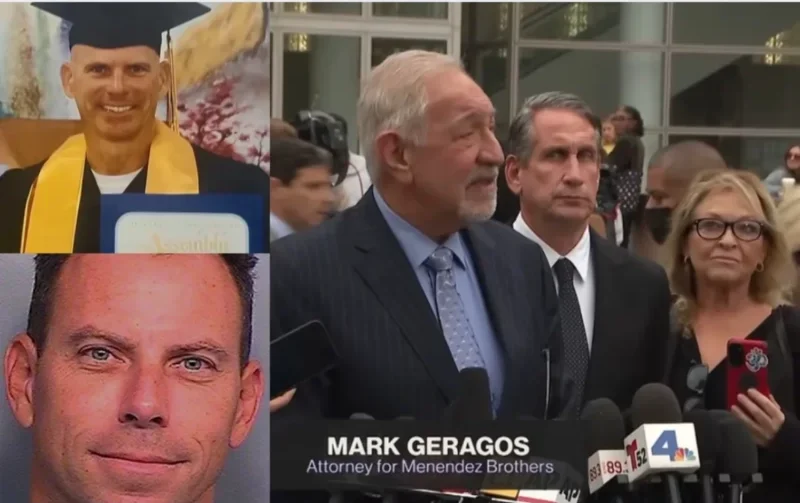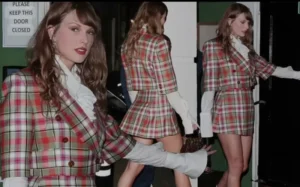Overview of the Resentencing Hearing
The resentencing hearing for Lyle and Erik Menendez, originally slated to occur in 2023, has been postponed until January 2025. This hearing is significant as it brings to light the ongoing legal controversies surrounding their convictions for the murders of their parents, Jose and Kitty Menendez, in 1989. The hearing serves a dual purpose: it allows the court to reassess the sentences in light of changing societal perspectives on justice and youth culpability, and it provides an opportunity for the brothers to present mitigating evidence that could lead to a more lenient sentence.
The implications of this postponement extend beyond the immediate legal ramifications. The delays in the courtroom highlight various procedural challenges, including technical difficulties that hindered the progress of the hearing. These concerns illustrate the complexities of the legal system and its capacity to adapt to evolving standards of justice. Moreover, the continuation of this high-profile case keeps the Menendez name prominent in public discussions about criminal justice, rehabilitation, and the punishment of juvenile offenders.
Throughout the years, societal attitudes towards crime and punishment have evolved, particularly concerning cases involving individuals sentenced as minors. As this hearing approaches, there is a growing debate surrounding whether Lyle and Erik Menendez should continue to serve life sentences without the possibility of parole, considering their age at the time of the crime and the psychological circumstances that were presented during the original trial.
As the new date of January 2025 approaches, those following the Menendez case will be watching closely to see how the courts address both the technical issues that led to the delay and the broader implications of re-evaluating their sentences. This period of anticipation raises fundamental questions about justice, accountability, and the potential for redemption within the legal system.
Details of the Court’s Technical Issues
The recent proceedings concerning the resentencing hearing of the Menendez brothers were significantly impacted by unexpected technical issues within the courtroom. These malfunctions included failures of the audio-visual equipment, which is critical for managing the presentation of evidence and facilitating communication between parties. The inability to properly transmit audio and visual elements inevitably led to delays, prompting the court to reassess the schedule for the hearing.
One potential reason for the technical malfunction could be attributed to the complexity and age of the equipment used in the courtroom. Many courtrooms utilize sophisticated technology to ensure all present can accurately engage with the hearing, yet older systems may struggle to meet current demands, resulting in outages. Additionally, a lack of regular maintenance might exacerbate these situations, suggesting that courtroom technology requires ongoing updates and checks to function seamlessly during critical hearings such as this one.
When technology fails in a courtroom, it brings into question not only the efficiency of the proceedings but also the rights of the defendants. In the case of the Menendez brothers, delays resulting from technical difficulties could potentially prolong their path to resolution. Courts usually have protocols in place to address such technical malfunctions, which might include quickly switching to backup systems or postponing the hearing to a later date when all equipment is operational. However, these protocols vary by jurisdiction and depend heavily on the existing resources available within a specific court.
The ramifications of these disruptions may extend beyond mere delays; they could influence the judicial process and the strategy surrounding the Menendez brothers’ case. As technology continues to play a pivotal role in legal proceedings, it is important for judicial systems to prioritize the reliability of their technological infrastructure to safeguard against such issues in the future.
Prison Infractions Revealed: New Developments
Recent reports have surfaced detailing the infractions committed by Lyle and Erik Menendez during their time in prison. These developments are crucial as they may impact their resentencing hearing and the public’s perception of the brothers. Over the years, both have been involved in various incidents that have drawn the attention of prison authorities, resulting in a series of documented infractions. These incidents range from minor rule violations to more serious breaches of conduct.
According to prison records, the Menendez brothers’ infractions have occurred with varying frequency. Some sources indicate that these violations have been relatively frequent, while others suggest a more sporadic pattern. Notably, these infractions include instances of contraband possession, unauthorized communication with outsiders, and defiance of prison protocols. Each incident has been meticulously recorded in the brothers’ inmate files, contributing to a complex narrative surrounding their behavior while incarcerated.
The relevance of these infractions to the upcoming resentencing hearing cannot be understated. During this pivotal moment in their legal journey, the judges and attorneys involved in the case may closely examine these documented brush-ups with prison regulations. A history of significant infractions could potentially overshadow the arguments made in favor of leniency, as they may be perceived as indicators of the brothers’ inability to adhere to societal norms, even within a controlled environment.
Moreover, the public reaction to these incidents plays a vital role in how the Menendez brothers are viewed outside the prison walls. Repeated infractions may solidify a negative narrative, further entrenching the perception of both men as individuals who have not learned from their past mistakes. Ultimately, this evolving situation will be pivotal not only in legal proceedings but also in shaping the broader discourse surrounding their case and the larger issues of crime and punishment in the justice system.
Looking Ahead: What to Expect in January 2025
As the rescheduled resentencing hearing for the Menendez brothers approaches in January 2025, there are several key aspects that stakeholders and followers of the case should watch closely. One crucial element to consider is the possibility of new developments arising in the case. Legal experts suggest that the time leading up to the hearing may witness the introduction of new evidence or arguments, which could significantly alter the trajectory of the proceedings. This potential for new findings emphasizes the dynamic nature of legal cases and suggests that public and media attention will remain high.
Another important facet to monitor is any changes in legal representation for the Menendez brothers. Over the years, their legal team has evolved, and shifts in counsel could indicate a new strategy moving forward. If the brothers decide to employ attorneys with different specializations or backgrounds, it may provide a fresh lens through which to examine their case. Adjustments in legal representation could also reflect their assessment of the previous hearing outcomes and the need for a more robust defense as they confront the resentencing process.
The broader implications of the January 2025 hearing cannot be overlooked. The outcome may not only influence the Menendez brothers’ future but could also bear significant ramifications for the public’s perception of the case. Factors such as media coverage and public opinion are likely to evolve as the new date approaches. This evolution may be shaped by the narratives constructed by news outlets and ongoing discussions around the legal system’s handling of high-profile cases. As the rescheduled hearing date nears, it becomes increasingly essential to follow these threads, as they may ultimately determine the direction of the case and its reception by the public at large.




